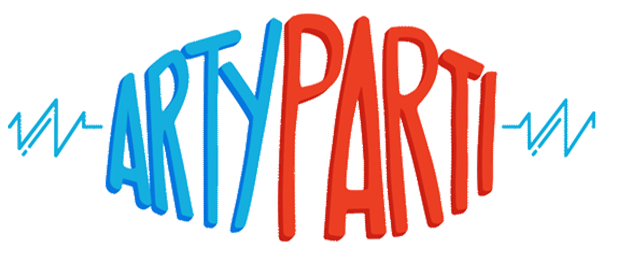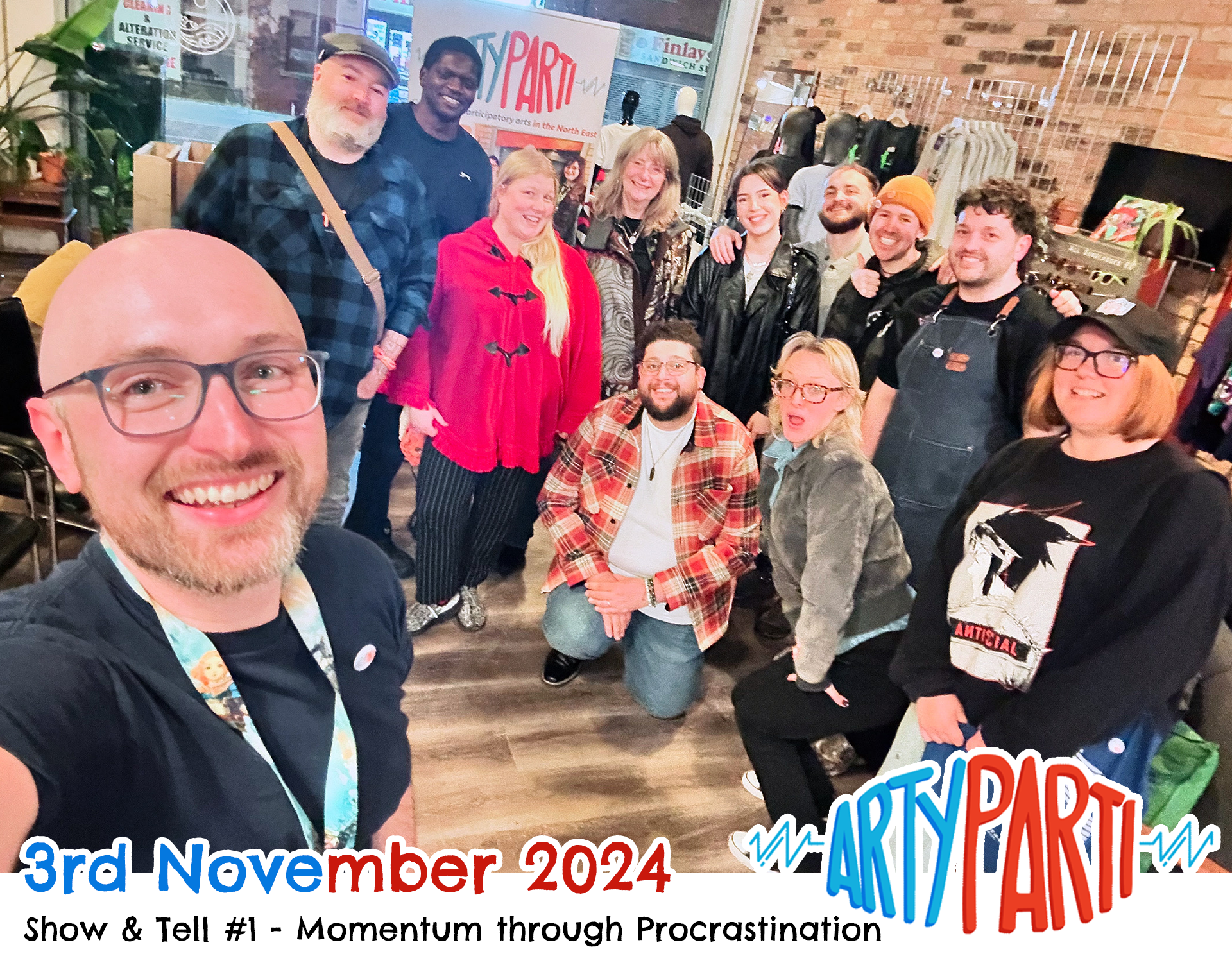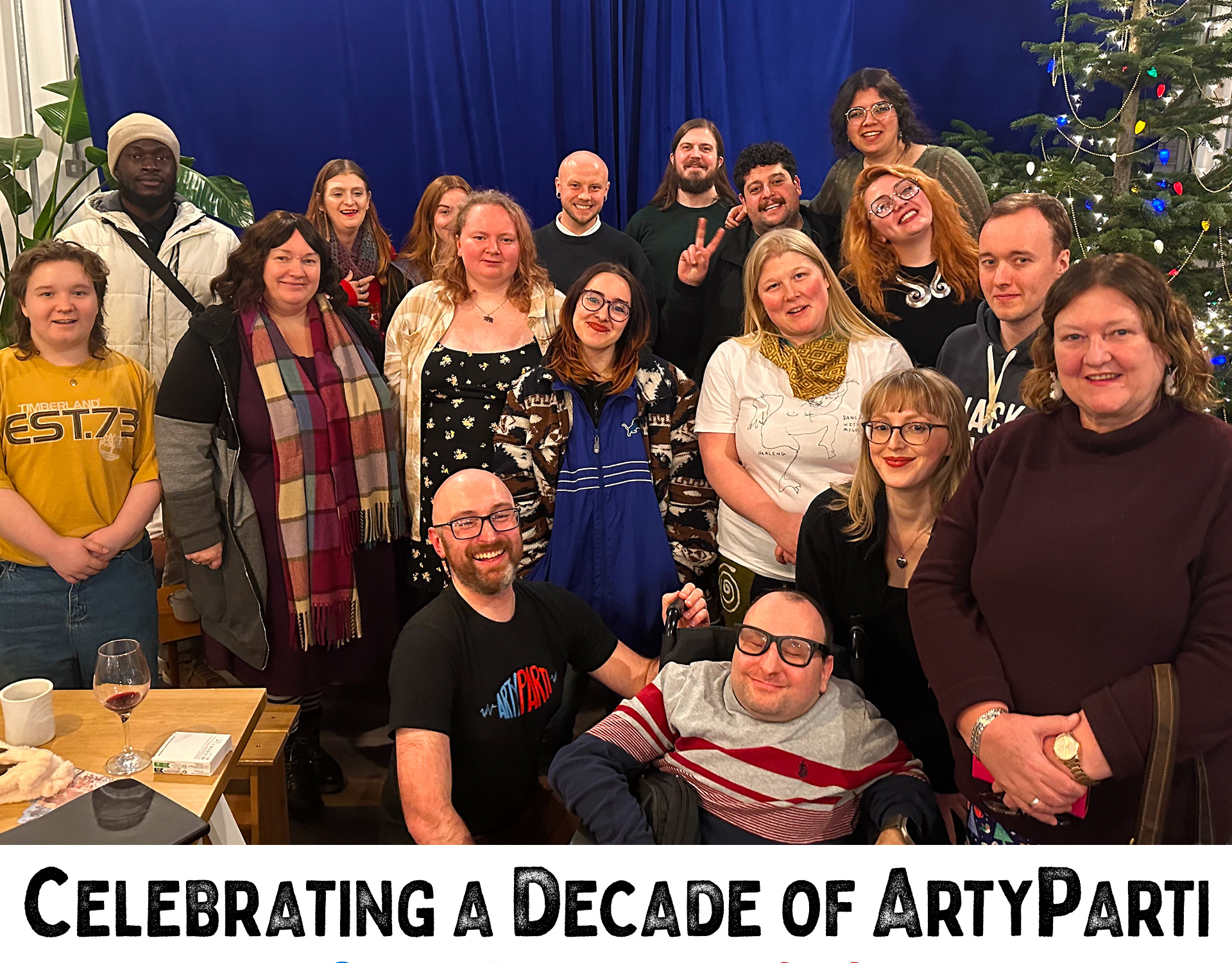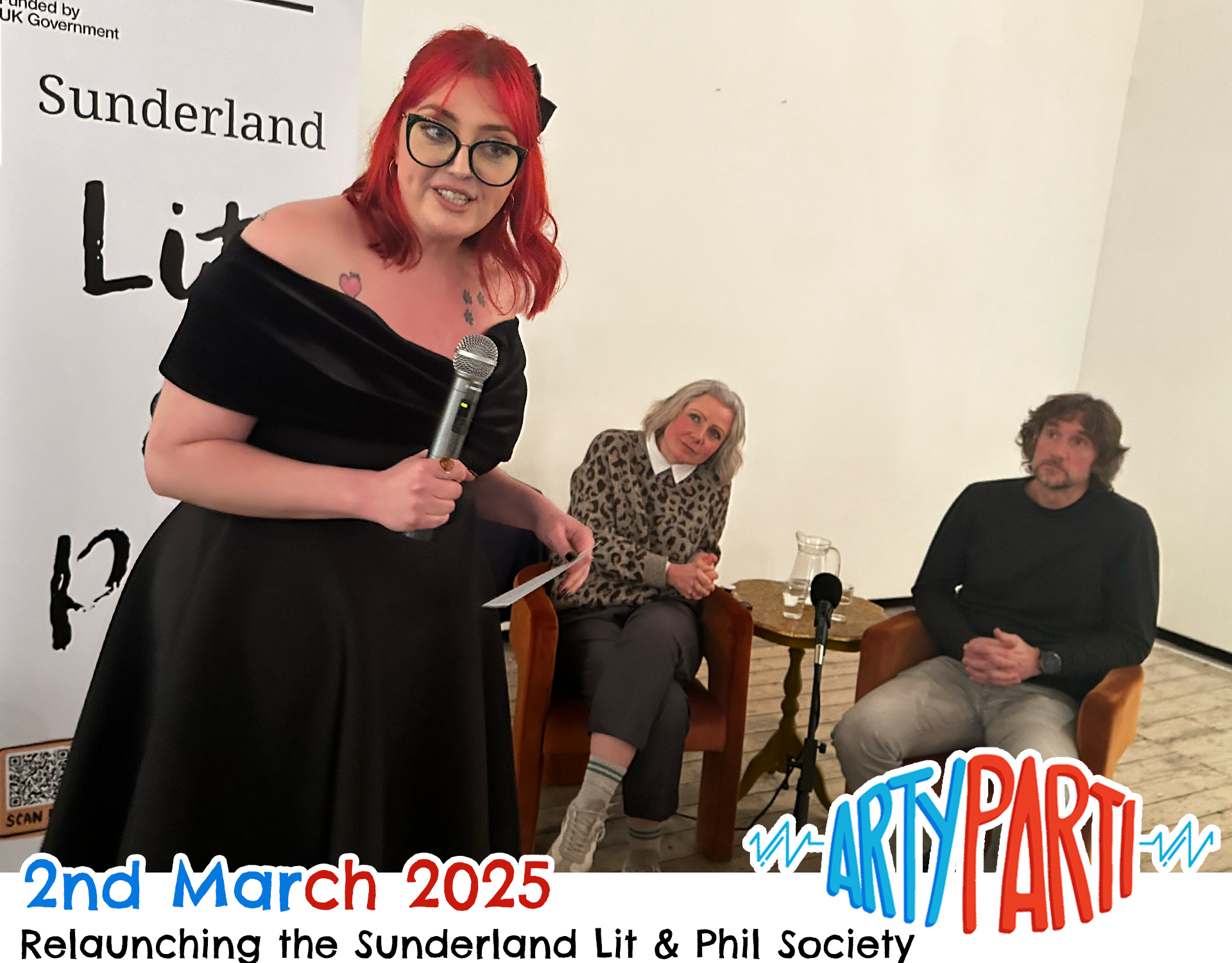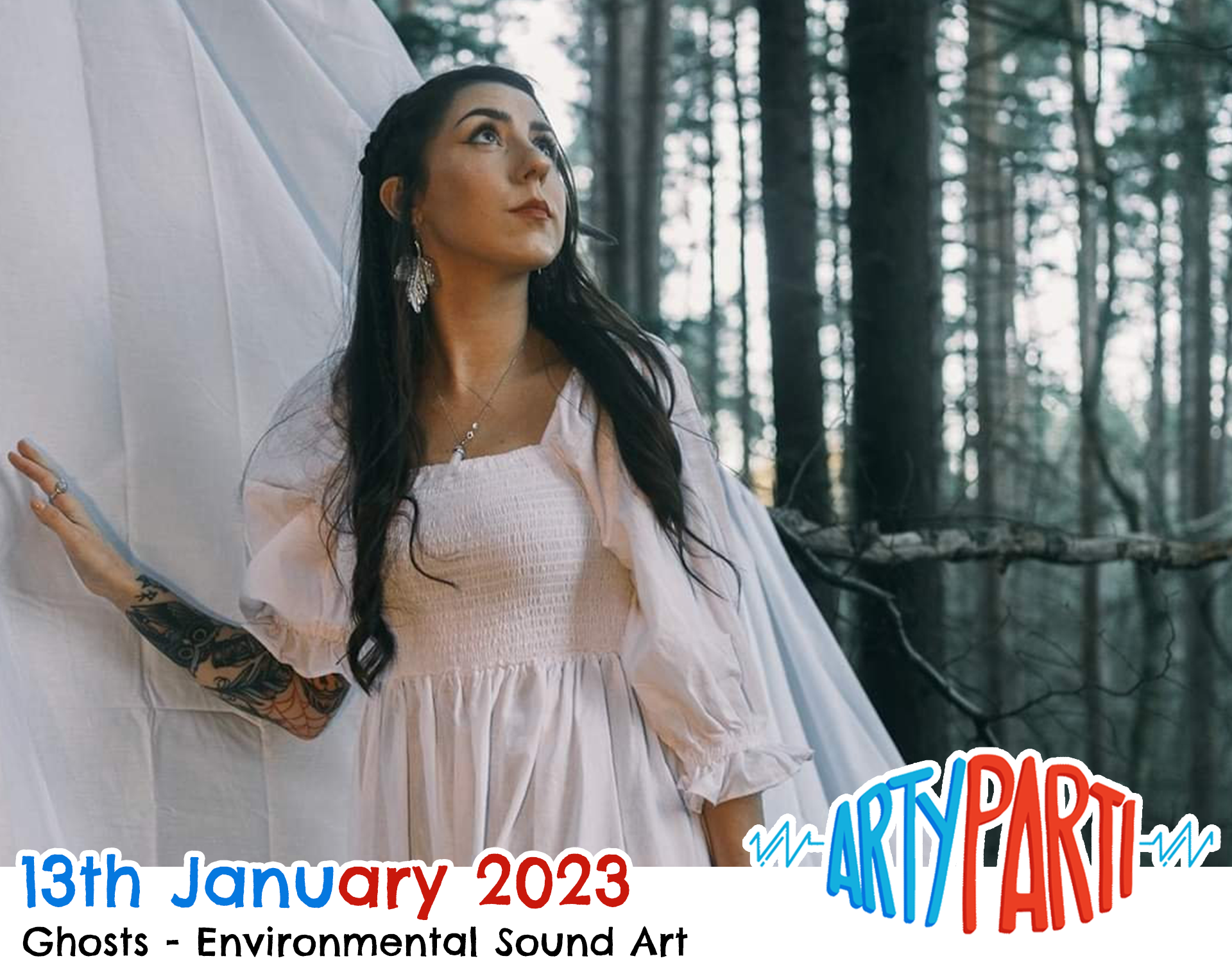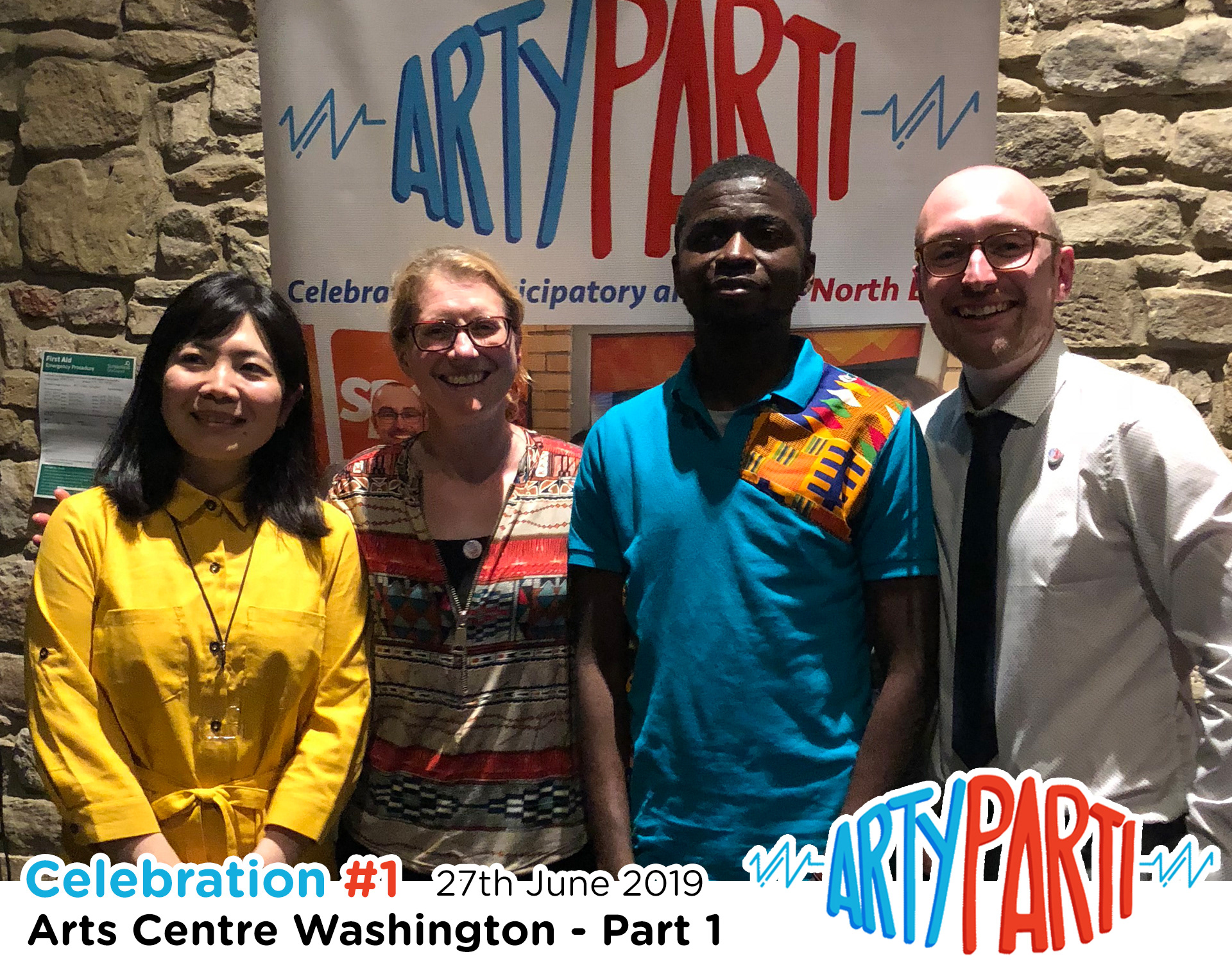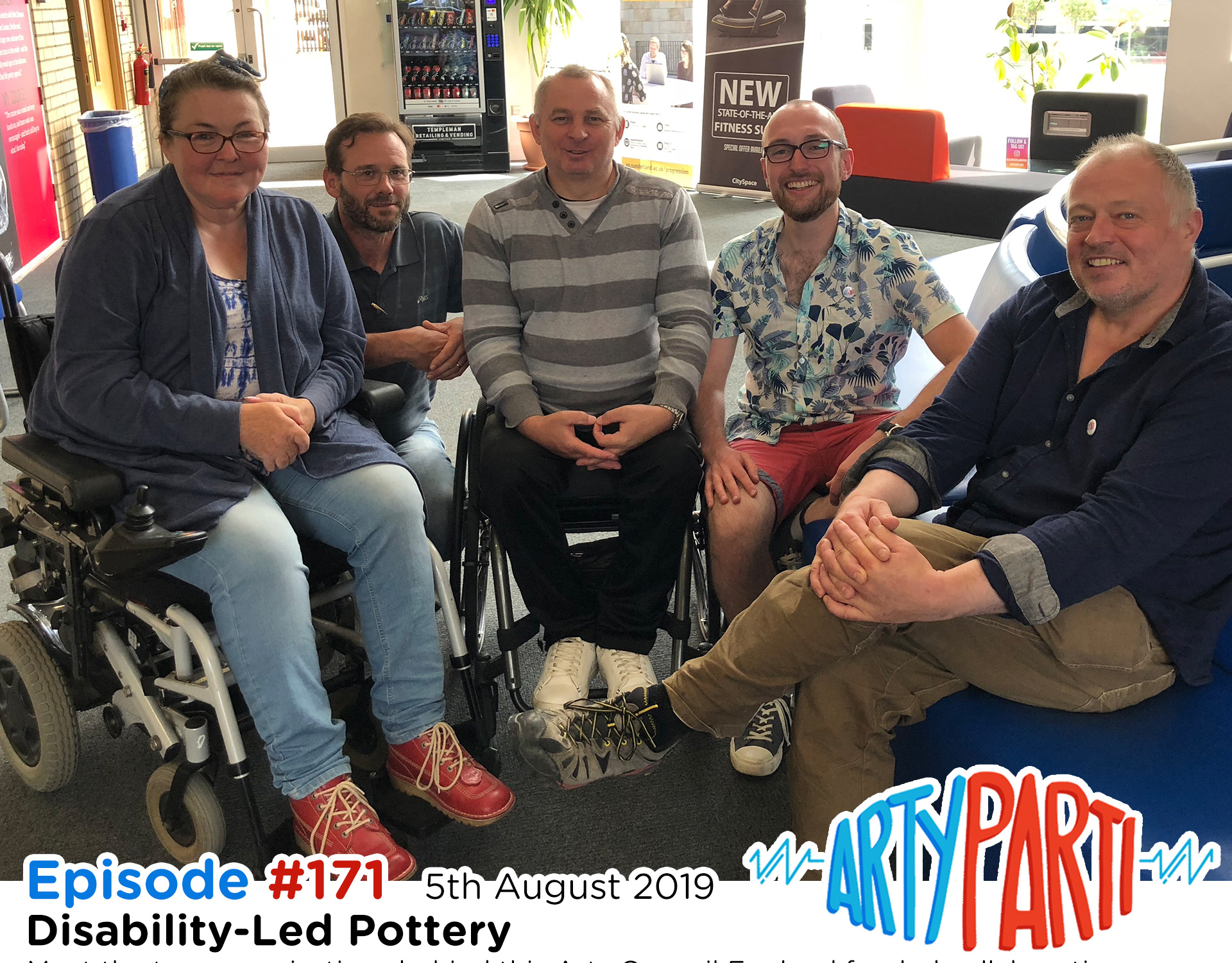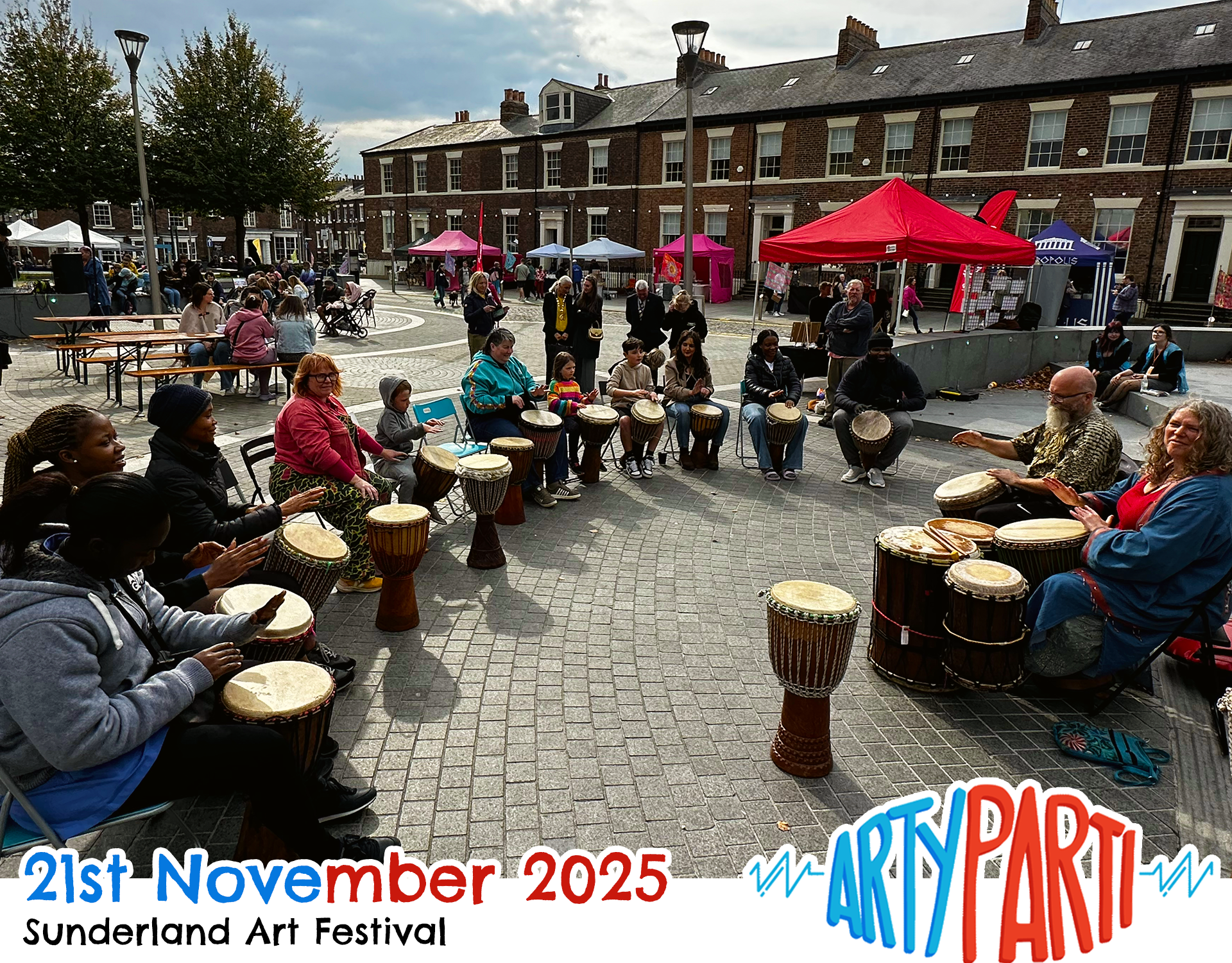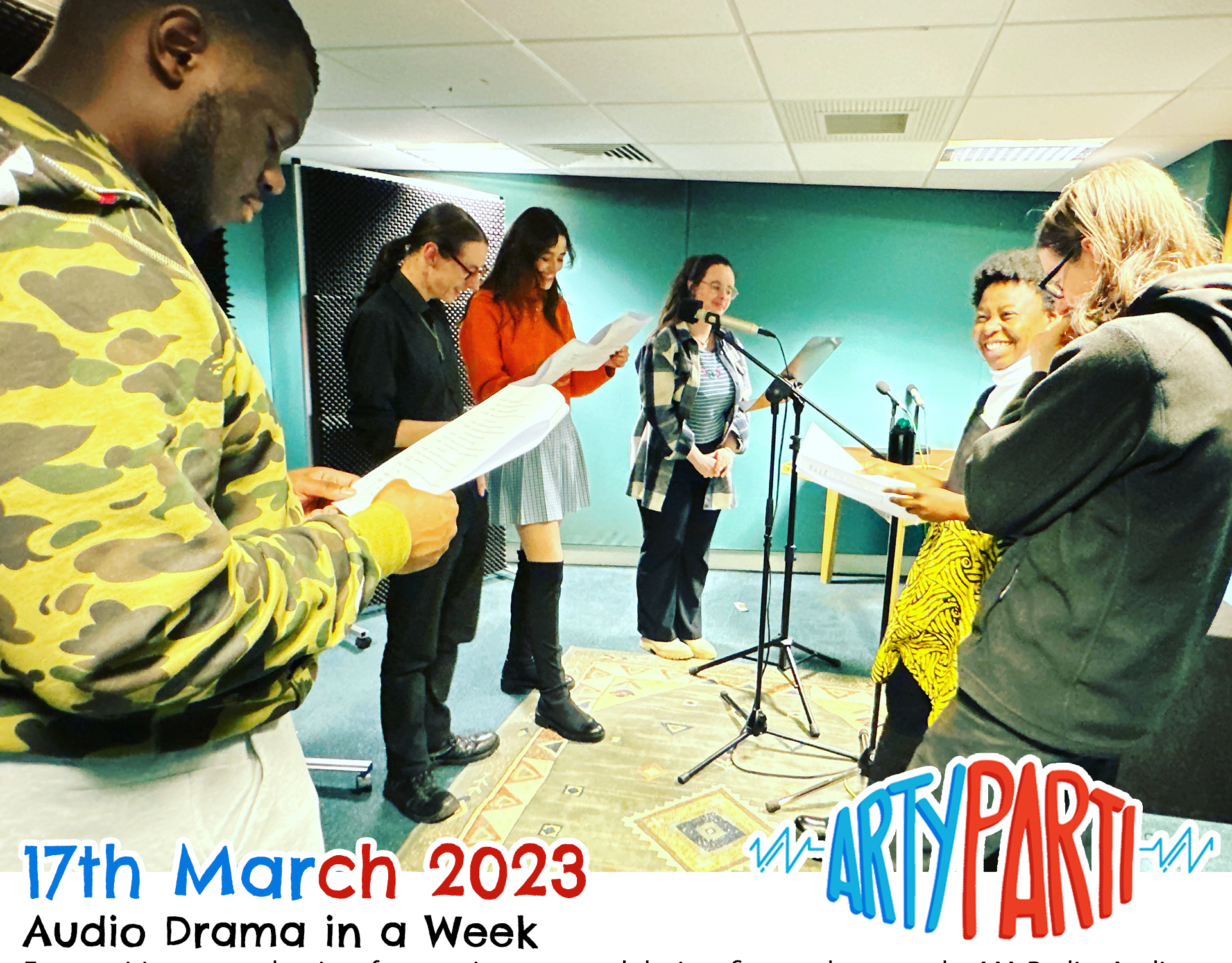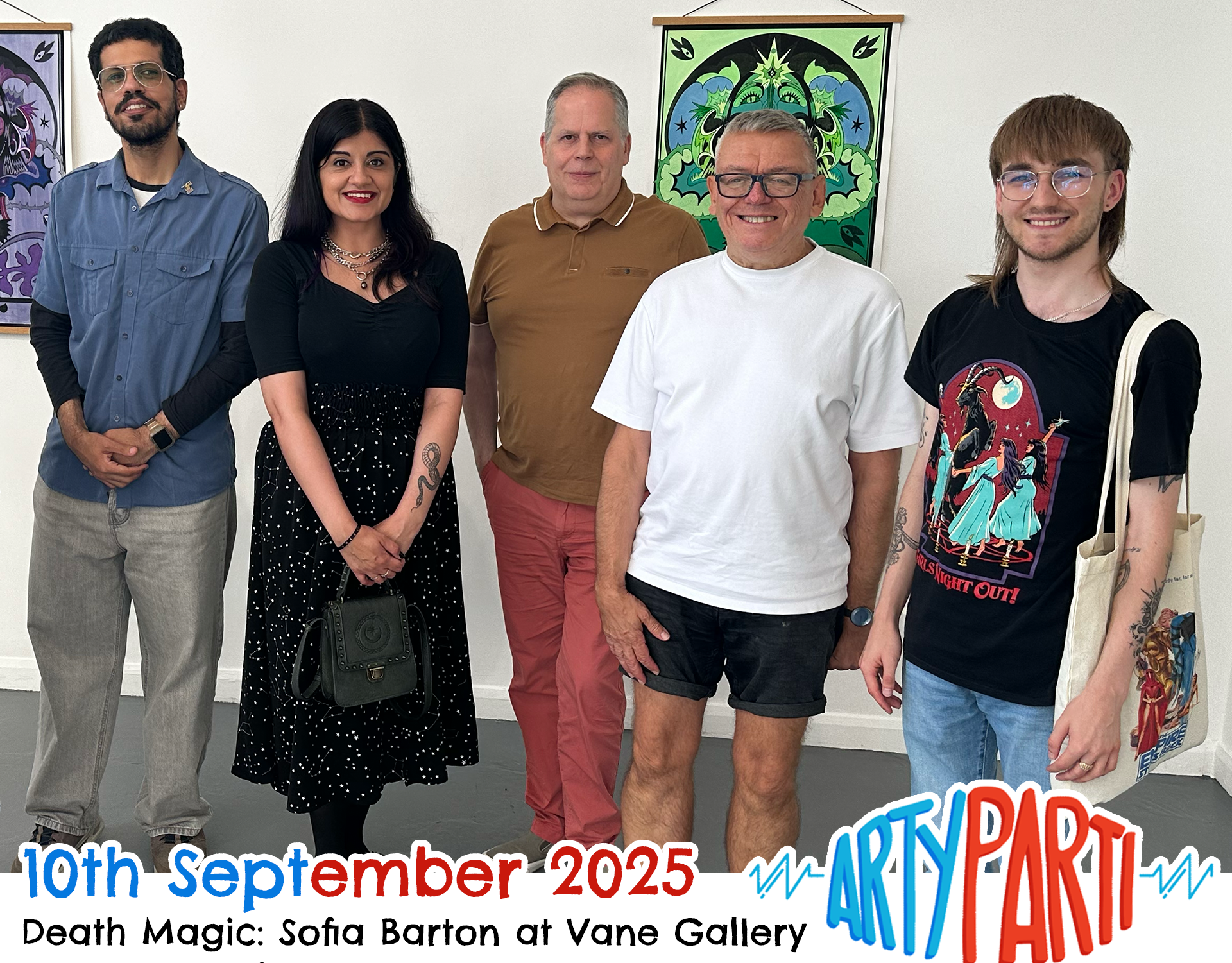JAY SYKES [00:29:50] Just given the microphone, Sharon Watson, an artist based in Sunderland, asks a question about arts, heritage and mental health to the panel at Mackie's Corner. SHARON WATSON [00:30:04] Broadly looking at heritage, if we can get the health back into the buildings, but also link in to how arts can improve the health of everybody in the nation to be involved in arts; whether it's participating in creating art, or whether it's to just view art, or to listen to art. [Art] enriches people's lives to such an extent, but we need those buildings as well. And I think a lot of the older buildings have been neglected and forgotten about. And if we can breathe life into them together, everybody is going to benefit.
SARAH CARR [00:30:41] (CHUCKLE) Yeah, no, I absolutely agree with everything you've said, actually. You know, that's kind of part of what we're doing, really, is to bring those buildings back in use. And, yeah, we recognise that that has an impact on people's health and wellbeing. There's actually some research which has been commissioned to look at that specifically, actually, and how people respond to their built environment, actually, and the changes that are happening around them. So hopefully change that can happen over the next few years, they're going to be, you know, really quite dramatic. Particularly around this junction here, I think you'll see real change.
JAY SYKES [00:31:13] I am so excited to see the Elephant Tea Rooms being redeveloped, as we've been talking about, the library space. SARAH CARR [00:31:21] The local studies library, yeah.
LAURA BREWIS [00:31:22] It's the Local Studies section, yeah. JAY SYKES [00:31:23] Local Studies Library, fabulous. SARAH CARR [00:31:24] Yeah.
JAY SYKES [00:31:24] Also, there's another project that I know is emerging - the Living Arts Hub.. JAY SYKES [00:31:28] Which is a collective people hoping to reform a space down the other end of Sunniside, ooh, that way. AUDIENCE [00:31:34] (CHUCKLES).
JAY SYKES [00:31:37] ..Into a living space, as well as an arts space - which I know has been successful in many European countries as well as other cities. LAURA BREWIS [00:31:45] So that's around creating both affordable housing, so social housing, where artists specifically, in this instance, but also people, can live, but also practice their artistic work. So, it would have workspaces and stuff like that. The idea has been floated at the moment around the Nile Street area, with Back on the Map and Create Streets. But it's a really, really interesting idea that also the [Sunderland City] Council are really behind, because it's around bringing people back into the city centre, which is a thing. I think there's some mad statistic about "only a thousand people live in a city centre" or something like that, which obviously has a huge impact on why the streets are really quiet on a night, and why people don't go out and have meals, and things like that. So there's a big drive to get more people living back in the city centre, which will hopefully make it a more vibrant, safe, interesting place to be past 5 o'clock when everyone goes home, and there's that feeling that the city kind of just shuts down. There is a real drive for that, and I think that has to be a really good idea (CHUCKLE) - to just bring people back, and families, and humans back into the city centre to, you know, like, animate the space, and be in the bars and be in the shops and all of that kind of stuff. So there needs to be sort of reverse of that sort of tide that's recently happened. JAY SYKES [00:33:10] I was chatting with John Green, one of the Managers at the Bridges Shopping Centre recently, about how they've been redeveloping their space and using their shops, not just as commercial units, but also as Frederick Street Gallery, for instance, and also the quiet space that they have now and the ping pong room... There's all of these new ways that I think people are trying to take advantage of their existing spaces that aren't being utilised, because of the lack of the demand for shopping in a location anymore. So there's clearly a lot of strategy being put into the ways that buildings are being reused and redeveloped. SARAH CARR [00:33:45] Yeah. Yeah, I mean, the high street's changed, we've just got of respond to that, really. And it's not kind of traditional uses of kind of retail. And Fawcett Street used to be residential before it was retail, you know? It was kind of houses with gardens, in the 18th and 19th century. So I guess it's kind of going full circle, really. (CHUCKLE)
SARAH CARR [00:34:01] We're kind of going but to that kind of, you know, trying to get people back into the centre again.
ROBERTA GLOVER [00:34:05] As a young person who absolutely loves the idea of bringing people back into the city centre, it is extraordinary expensive to live in the city centre. And for someone who wants to move out, for someone who wants to become more involved in the city, getting a good job in the city is extraordinary hard. And I've got a bachelor's degree in psychology, in a science, you know? And I still can't find a decent job. Never mind to move out, never mind to live in the city. So, I mean, how do you propose sort of making living in the city more accessible?
LAURA BREWIS [00:34:38] Well, I think that's one of the really, really interesting things about this Living Arts Hub that's been proposed, because it is around social housing. It's not about having to a buy a house, it's not about having to get a loan to be a first time buyer or anything like that, it's actually about proper social housing. That's been sort of phased out, basically, of all places. So, there is a recognition that that needs to happen to keep young people in the city, and to make city centres vibrant again. But I think, like with all things, the tide turned away from that, and now it's perhaps turning back, hopefully? And I think this proposed scheme is one of a couple on the cards for the city centre. So hopefully (I don't have a housing brief, I don't know). But hopefully this is a thing that is starting to be recognised by councils, and those people that have the influence to do that kind of stuff. ROBERTA GLOVER [00:35:36] That does sound really, really good.
ROBERTA GLOVER [00:35:40] Because I don't want to move out..
ROBERTA GLOVER [00:35:42] ..To someone on the outside of Sunderland. I want to live somewhere where I can see people, where I can see the arts, where if it is being more involved in the city centre, I want to be here when it is here.
LAURA BREWIS [00:35:53] And I think that's a weird sort of paradox which has existed over the last years, which is people saying that they're really invested in the city centre and they want it to be thriving, but also pricing people out of the city centre at the same time. And I think there's a recognition of that, and hopefully that, yeah, yeah, that tide will start to turn because, yeah, without people being able to live here and exist here and participate in all of this stuff that is happening, hopefully starting to happen, it's a dead end, it's not going to work. Especially in somewhere like Sunderland, which has a lot of challenges. Let's all hope (LAUGHS) is what I'd say. ROBERTA GLOVER [00:36:35] Right, okay.
JAY SYKES [00:36:37] And I love that, you know, we're getting together here on ArtyParti to have conversations like this, and ask these important questions that need to be addressed. There's also groups like the Artists’ Union that meet regularly.. JAY SYKES [00:36:46] .. In the other Pop Recs building, where it's about trying to change things like this. So, I think these conversations need to keep happening. LAURA BREWIS [00:36:54] But I think this definitely sitting around activism, and being visible, and saying these things out loud, and being together to make these cases. Because without that, nobody is going to hear it. DR. LOES VELDPAUS [00:37:06] But also making these matches happen, right? Because then Back on the Map it sort of like interested to organise this and to do this, but they struggle to find the artists who are interested to be involved, whereas there are for sure also loads of artists saying "there is nowhere for me to live". So it's like where does this come together? LAURA BREWIS [00:37:23] It's like, yeah, the brokerage of that, yeah. SARAH CARR [00:37:24] Is that you? (TO LAURA) AUDIENCE [00:37:26] (LAUGHTER).
SARAH CARR [00:37:26] (LAUGHS)
ROBERTA GLOVER [00:37:26] I do actually have one more question. I'm only here because my parents are artists, and happen to know people, And a lot of people I know who are young don't know about these things, and don't know about this space, and don't know about the art that's going on. Is there anything that can include a younger generation, in terms of making this sort of events and events like this more known?
LAURA BREWIS [00:37:52] I think one million percent, that is definitely needed. And I think one of the things that we're trying to do at Sunderland Culture is make that pathway from university to whatever comes next more visible and more obvious as to what the pathways [are], because we totally acknowledge that there are loads and loads of creative graduates that come out of this University [of Sunderland], and loads of loads of graduates that aren't creative, but who want to stay in the city centre and make their living here, who have to leave because they feel like there's more opportunities elsewhere. And I think part of what we really, really need to do is make that more obvious, and easier, and more affordable, and all of those things. So I think that is definitely a recognition that we need to address that kind of.. We need to lose less people, basically. (LAUGHS) ROBERTA GLOVER [00:38:45] Yeah, definitely.
DR. LOES VELDPAUS [00:38:54] I think it's really important that these kind of spaces exist, and that even when you're like 14, you feel like there is a space you can go, and music or arts or any other creative way of approaching life, let's say, it's kind of helpful for people to engage in it. You know, if you have to go to Sunderland Mind or to Washington Mind, it's kind of like a big step. But if you can go to Pop Recs, and then you can get into touch with people who are also talking about mental health, or it just makes a step easier. So I think it's really important that these things are connected up, and we all work together, but we also recognise the work that is already happening. ROBERTA GLOVER [00:39:27] Yeah.
DR. LOES VELDPAUS [00:39:27] Because there is a lot, and a lot of passion is being put into this. ROBERTA GLOVER [00:39:32] I think it would be helpful if these of events, where maybe.. Not beforehand, because I know this is very limited spacing, maybe like afterwards.. Explain that these talks are happening, so that the young generation know that these sort of issues are being talked about.
LAURA BREWIS [00:39:46] It's totally that visibility thing again, isn't it? ROBERTA GLOVER [00:39:48] Yeah.
LAURA BREWIS [00:39:49] It's that kind of self-perpetuating thing that people don't see it, so they feel like it's not happening. ROBERTA GLOVER [00:39:54] Yeah.
LAURA BREWIS [00:39:54] Which isn't necessarily right. But if we don't talk about it, and if we haven't got ways of promoting it, and we haven't got ways of sort of celebrating it, it becomes invisible. ROBERTA GLOVER [00:40:05] Yeah.
LAURA BREWIS [00:40:05] So I think it's all about also raising the profile of that, and being in the city centre in a space like Mackie's Corner is a part of that. LAURA BREWIS [00:40:12] Yeah. But there's loads more work to do. SOUNDS [00:40:14] (ARTYPARTI IDENT)
JAY SYKES [00:40:17] I'd love to ask a question directly of Sarah Carr, in regards to the [Sunderland] Heritage Action Zone, and your role within revitalising the city and the spaces that are being made, you know, to make the city centre as you're talking about, this space that is vibrant and is bustling again. SARAH CARR [00:40:35] Yeah, I mean, it is, as I said, it's like a five year project, and I think it'll go beyond five years, and not everything's gonna be achieved within that five year period. But, I think it's kind of the start. Certainly the area that we've identified is one that we want to really kind of regenerate with more people using it, and that being evidence of economic regeneration as well. But that's not done just by use alone, it's a really big kind of partnership project. So we've got Sunderland Culture, Sunderland Heritage Forum, Churches Conservation Trust, who are redeveloping Holy Trinity Church, Tyne and Wear Building Preservation Trust, Historic England, obviously, a key funder. It's a project that is really driven by a really strong partnership, actually. So without those partners, we wouldn't be able to do everything that we want to achieve. But as I said, I think they'll be lots to do beyond that five years. (CHUCKLES). SARAH CARR [00:41:27] I don't think the answer is going to come by August 2022. (CHUCKLES)
JAY SYKES [00:41:31] It's another theme that emerges as part of ArtyParti, often it's... SARAH CARR [00:41:35] Yeah.
JAY SYKES [00:41:35] And. It's the same for big players, as well as people... Collaborations and partnerships seem to be the lifeblood of creative work. SARAH CARR [00:41:42] Yeah, absolutely, yeah. And certainly I mean, that Unlock Strand, I can't emphasise enough really how important that's been and just animating those spaces, and just bringing people into those spaces as well, into kind of historic buildings that would've just been empty until work started in terms of restoration. So building awareness, you know they're landmark buildings as well, that people have like really personal connections to. So just having that opportunity come back into those buildings has been.. LAURA BREWIS [00:42:06] Sometimes it's literally just walking to the door, isn't it? SARAH CARR [00:42:08] Yeah, yeah.
LAURA BREWIS [00:42:09] You know, some of the stuff around, that we've seen in High Street [West], is literally about people coming through the door and telling us what their nana used to do in this space. Or that their great, great, great grandad used to run a hat shop there, or.. You know, like literally all of the stories. So there's something about literally just opening the door. That's very powerful, isn't it? SARAH CARR [00:42:30] Yeah, and that's definitely triggered and sparked by stepping into a building.
SARAH CARR [00:42:34] Kind of, you know, stepping in and seeing a person that they can then talk to, and kind of share that story with.
SARAH CARR [00:42:39] Yeah.
LAURA BREWIS [00:42:40] It's not it's not necessarily really complicated, but... DR. LOES VELDPAUS [00:42:41] Well that's the start, right? Because that's only the start. DR. LOES VELDPAUS [00:42:45] And I think it's also really interesting to see... So what we've been doing over the past week in High Street West is opening the space up for people to come in and have these stories, and talk to us about it. But also have the Rebel Women of Sunderland exhibition, so people come in for different reasons. So, you know, the people that come in for Heritage Open Days, you can imagine they're a particular kind of audience, right? Because most of the Heritage Open Days stuff is like, open... DR. LOES VELDPAUS [00:43:08] During the day. And so, it's a lot of retired people, who are really super interested and have a lot of these stories. But you also want other people in. So, with the Rebel Women of Sunderland exhibition, we also got a lot of young people in, we got a lot of people just interested in the exhibition, but actually walking into the building. And then they're like.. DR. LOES VELDPAUS [00:43:24] "Oh, this is actually.. I've never been in here, it is quite interesting." "Yeah, next door is the original Binns [Department Store]." "Oh, really? That's really interesting..." And, you know, so, you can start a conversation, and they start to sort of like know a bit more about the buildings, be more interested. And then you can ask, like, "how would you like to engage with this? Are you interested in more? Or do you..? Is it just like whatever you want? Is this fine? Do you want us to programme this space, or are you not really interested in stuff happening here?" And it starts a conversation, which I think is an important one to have with people in the neighbourhood, and the city, to come together and make this stuff happen, and know that there are places where you can make this stuff happen. So even though it was just for a week, it was very... JAY SYKES [00:44:03] We are, of course, recording here in Mackie's Corner for this. The name of this event, "A Legacy of Mackie's Corner", looking at what this space has accomplished and housed over the past year, and how this might influence the future. So the one last question that I'm wanting to pose, really to all three of you is... This is possibly the last time this building is going to be used in this form, is that right? LAURA BREWIS [00:44:28] It is indeed the last time I will be used in this.. SARAH CARR [00:44:31] Momentous occasion.
JAY SYKES [00:44:33] So do you have any last words for the place? SARAH CARR [00:44:37] I was gonna say, it's not final goodbye for me, because restoration work starts in the new year.
LAURA BREWIS [00:44:42] Yeah I was gonna say, it's only just started for Sarah! SARAH CARR [00:44:43] Yay! (LAUGHS)
DR. LOES VELDPAUS [00:44:43] It's an ending for what was happening in the space, but it's also beginning. SARAH CARR [00:44:46] Yeah.
LAURA BREWIS [00:44:49] And it's a learning experience, isn't it? Of like what works, what doesn't work, what you can try, what spaces you need. It would be much better if this had a toilet, for example, etc.. AUDIENCE [00:44:59] (LAUGHS)
LAURA BREWIS [00:45:00] You know? I've learned a lot from this space. So it's like gathering the learning that's happened, having the legacy of all of those brilliant artists that have been through the place, and the things that it's kicked off.. And I was talking to Kath [Price] earlier who was talking about the amount of exhibitions that this has kind of triggered for her... The amount of things in the city that this has sort of catalysed... The Frederick Street Gallery, and Norfolk Street Arts, and all kinds of really interesting things, which would probably have happened without this happening, but maybe wouldn't have happened as quickly, or maybe there wouldn't have been that momentum built up. It's kind of gathering all of that stuff up, and about processes, which is quite boring, but about, like, how do we make it easier for artists to get into spaces like this in the future? You know, we've had really brilliant landlords in this particular instance, who've been like, just go on with what you want. LAURA BREWIS [00:45:50] Yeah, the Kirtleys have been totally amazing in all of this, and have just really let us get on and do what we wanted. But also, this is now an example. So we can go other landlords like this, and go, "oh, actually, we've done it here, there's been no trouble, it's been really successful, we've had people through the building, it's made people see what this space could be used for." It's using is as an example, and around catalysing other people to do stuff. So it doesn't necessarily have to be any of those doing it, but it's about making stuff happen. SARAH CARR [00:46:19] And it's been a way of putting Mackie's [Corner] back on the map. SARAH CARR [00:46:21] And just creating that buzz around the building again. This would have been a real hub in its heyday, and it's just been great to see that again, actually.
LAURA BREWIS [00:46:29] Yeah. And I think lots of people will now be watching for what happens next. SARAH CARR [00:46:32] Yeah.
SARAH CARR [00:46:34] Yeah, absolutely.
LAURA BREWIS [00:46:34] In a way that, probably, if that just happened without a year of activity in the building, it might have gone unnoticed, you know? SARAH CARR [00:46:41] So I think that's a real kind of sense of like expectation and excitement, actually, about what's gonna come next.
LAURA BREWIS [00:46:45] Like, "oh what's gonna happen next?" Yeah, "what's gonna happen next in this space?" SARAH CARR [00:46:45] So that's, yeah, thank you, that's been, you know, that's that's part of your contribution.
DR. LOES VELDPAUS [00:46:51] It would be really amazing if like this amazing landlord would be interested, also, in maybe putting on some art exhibition once it's finished, so it doesn't stop here. I think that would be really nice to kind of like continue to support... LAURA BREWIS [00:47:03] I don't want to speak for Alex, but I think it she'd be right up for just right. She's right into this kind of thing, so. AUDIENCE [00:47:10] (CHEERS AND CLAPPING).
SOUNDS [00:47:10] (THEME TUNE BY MUSELEON) JAY SYKES [00:47:19] So thank you all so much for being here. But I'd also like to say a huge thank you to our three panellists on board ArtyParti today. Thank you to Sarah Carr from Sunderland Heritage Action Zone. AUDIENCE [00:47:29] (CLAPPING).
AUDIENCE [00:47:36] (CLAPPING).
AUDIENCE [00:47:49] (CLAPPING).
SARAH CARR [00:47:49] (LAUGHS).
AUDIENCE [00:47:58] (CLAPPING AND WHOOPING)
